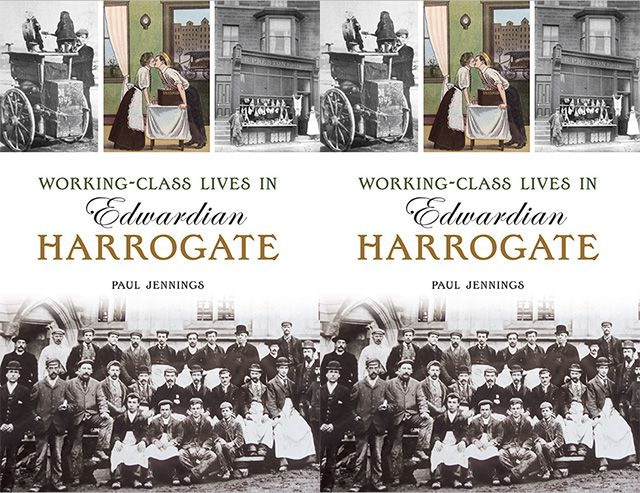Working-class Lives in Edwardian Harrogate
Book review

Working-class Lives in Edwardian Harrogate, Paul Jennings, Palatine Books, 2022, 264p, £14.99. ISBN 978-1-910837-37-5.
Instinctively most people would identify Harrogate in modern times as a rather well-built and prosperous tourist centre. Of course, it is more than that because the real impetus to its history was its emergence as a spa town in eighteenth and nineteenth century Yorkshire. It was that status and role which contributed to the pre-eminent position which it still occupies.
What Paul Jennings has done, very carefully and systematically, is to remind us that this hugely successful social phenomenon was built on the efforts of working-class people. It is noticeable that he does not offer us ‘working-class life’ but ‘working-class lives’. This is not especially an investigation into the nature of working-class domestic life but it is a fascinating journey into the nature and experience of the working-class population that was recruited and employed to enable this spa town to succeed so well.
Central to his research is the use of the 1901 and 1911 census data, which helpfully surround the chronology of Edwardian England. Using this book, you will be guided into how these materials, amplified and further cross-referenced, can be employed to analyse the origins, the statistical scale and family relationships of the workers, men and women, who kept Harrogate functioning in Edwardian times.
Of course, it will interest readers who have a personal interest in the town, both by family ties but also by having enjoyed what it still offers nowadays. In doing so it does offer a reminder to us that services and facilities need to be provided and that they are built on human endeavour, often by people of whom we may not necessarily be aware. Given the quality of this research and its clarity, I would recommend that this book has much to offer anyone who is interested in how the service sector was being provided in Britain in the years leading up to the Great War because it offers a template for further research elsewhere.

